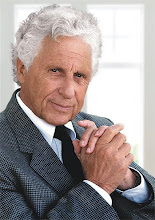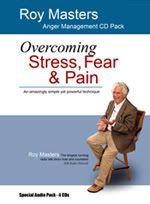Stop Worrying: Part 2 | Overcoming Worry Caused By Stress
 Podcast Here
Podcast Here
Do you have a “strange super-sense of responsibility” regarding close family and friends? Does your work, family and other daily obligations flood your mind with constant worry? Is the stress and anxiety of life dragging you down and holding you back? Are you looking to truly stop worrying and start living?
Though people are playfully referred to as “worry warts,” the continuous loop of thoughts and emotions that make up what we call worry is no laughing matter. The good news is that the only thing necessary to cure worry is a simple change of perspective.
In this free podcast episode, radio counselor Roy Masters continues his conversation with Bill from Philadelphia about his worry and anxiety issues. Roy explains how allowing people and circumstances to pull you in emotionally, and getting “all worked up” over them, is where worry begins its negative cycle. By understanding where these common dangers lie, anyone who wishes to deflect them can do so with confidence. Stress should be considered a useful tool for becoming a better person, not the beginning of a seemingly insurmountable problem.
This is the second episode in a two-part program on stopping worry. Hear Part 1, “Stop Worrying | Breaking Free From Constant Worry and Doubt,” for the beginning of Roy and Bill’s conversation.
(Clip from episode: K3682)
This podcast is brought to you by the Foundation of Human Understanding: http://www.fhu.com
Quotes regarding constant worry from the book
How Your Mind Can Keep You Well by Roy Masters:
“Because of our dependency upon the prod of environment, we procrastinate. We move only when we are upset, but that is the wrong time. We worry about what we have not done and resent what we must do, which grows increasingly difficult. Now we worry because we are afraid of making another mistake. Or we seek a reason to motivate us or excuse our inactivity. Now we have more to do and less time to do it—more worry!”
“Worry over the situation only makes it worse, and an outsider’s attempt to ease the tension by being polite only releases a greater flood of anger and reactivates the cycle.”
“The problem-solving activity of the foolish ego is called worry. Blind worry adds impetus to the problem and often draws to us the very thing we fear. Nagging thoughts caused by our upsets can cause us to do the very thing we dread or detest, just to get it off our minds. But it does not succeed. We are only upset again when we discover that we have compounded our problem by taking the wrong action, and added, in the vain hope of relieving the feeling, more compulsive worry as a result of being upset over our newer blunders.”
-----
If you suffer deeply from the effects of stress, fear or pain, we recommend the Overcoming Stress, Fear, and Pain Pack.













